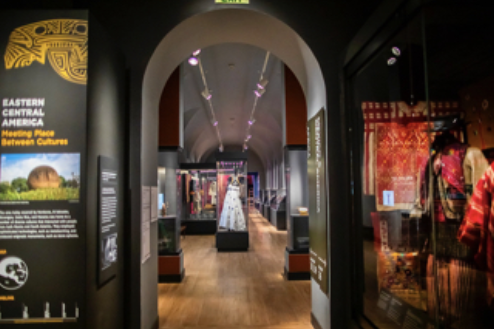
Penn Museum
The Penn Museum advances understanding of the world’s cultural heritage through its extensive research, collections, exhibitions, and educational programming.
From the one of a kind museums on campus to accomplished student performances in music, dance, and theater, culture and the arts play a leading role in life at Penn.
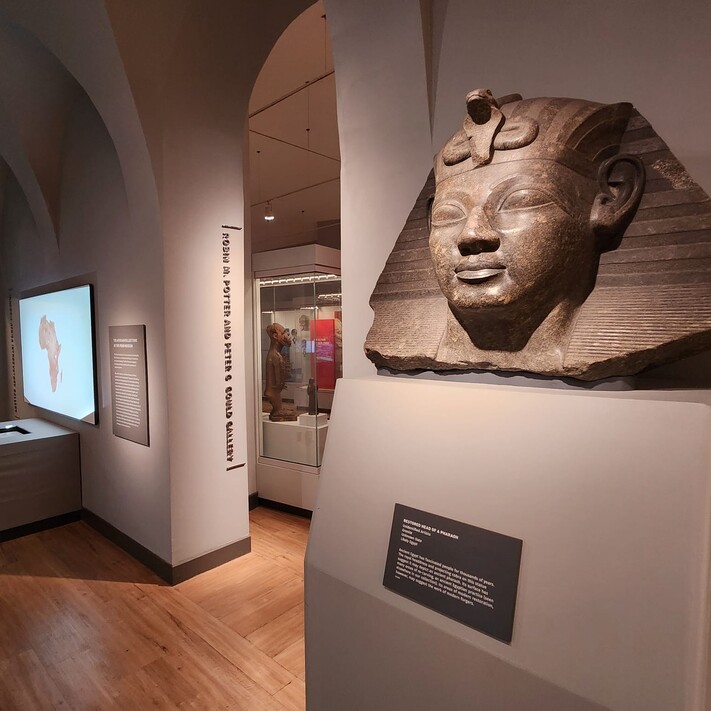
Creative expression of all kinds flourishes at Penn. On campus, garner access to world-class arts and culture through a variety of programs and highly regarded centers of art and cultural excellence.

The Penn Museum advances understanding of the world’s cultural heritage through its extensive research, collections, exhibitions, and educational programming.
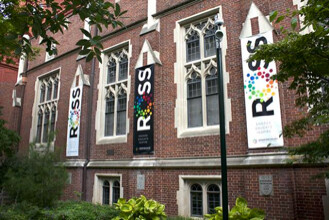
Serving as a rich cultural resource for students, scholars, and the community, the Arthur Ross Gallery presents global art and artifacts through gallery exhibitions, scholarship, and educational outreach.
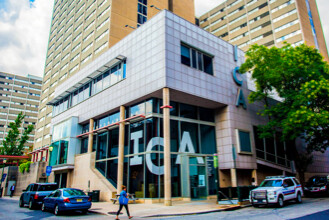
The Institute of Contemporary Art believes in the power of art and artists to inform and inspire. The ICA is free for all to engage and connect with the art of our time.
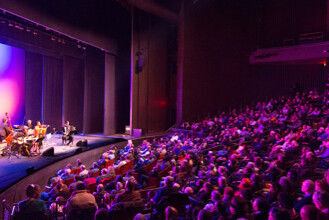
Penn Live Arts is a major cultural destination and crossroads in the performing arts, connecting regional audiences and the University through exposure to innovative human expression in theater, music, and dance.
Platt Student Performing Arts House offers a supportive programmatic home for creative exploration and expression, advising and training students pursuing their extra-curricular passions for the performing arts and those preparing for a career in the arts.
Anthropology is the involved social science. It is both scientifically rooted and actively engaged and moves with the times. It makes a difference, and produces global awareness.
Housed at Meyerson Hall, the Architecture department includes design studios, exhibition spaces, classrooms, state of the art laboratories for computing and fabrication, and two advanced research labs.
The Penn Cinema Studies major and minor are traditional humanities programs involving the critical study of film history, theory, and aesthetics, rather than film or video production.
The Program in Comparative Literature & Literary Theory at Penn is a dynamic and congenial intellectual community that brings members together through common interests.
The goal of Computer Graphics and Game Technology is to expose recent graduates, as well as students returning from industry, to state-of-the-art graphics and animation technologies, as well as interactive media design principles, product development methodologies, and engineering entrepreneurship.
Creative Writing offers writing workshops every semester in fiction, poetry, and non-fiction, as well as screenwriting, playwriting, journalism, and writing for children.
The Digital Media Design program is an interdisciplinary major in the School of Engineering and Applied Science (SEAS) that combines courses offered in the SEAS Department of Computer and Information Science, the Annenberg School, and the Stuart Weitzman School of Design.
Fine Arts is a comprehensive program, housed in the Weitzman School that offers both the undergraduate Fine Arts Major and the graduate Master of Fine Arts degree.
The Graduate Program in Historic Preservation provides an integrated approach for architects, landscape architects, planners, historians, archaeologists, conservators, managers, and other professionals to understand, sustain, and transform the existing environment.
The Department of the History of Art is home to an undergraduate program with extensive academic offerings and opportunities, as well as a renowned graduate program which draws faculty from across the University, deeply enriching its scholarly breadth.
The department of Landscape Architecture advances its legacy through its commitment to innovative design as informed by ecology, the history of ideas, techniques of construction, new media, and contemporary urbanism.
The Department of Music offers outstanding courses and performing ensembles that are open to all Penn undergraduates, as well as graduate programs in composition, musicology, ethnomusicology, and music theory.
The Theatre Arts Program at Penn offers students the opportunity to study theater in the classroom and in production work under the guidance of faculty members who are experienced and trained actors, directors, scholars, and teachers.
The Visual Studies major was created in 2003 to give students direct engagement with new technologies and philosophies of vision through a multidisciplinary course of study that connects the theory, practice, and culture of seeing.
The Annenberg Center is a major cultural destination and crossroads in the performing arts, connecting regional audiences and the University through exposure to innovative human expression in theater, music, and dance.
Serving as a rich cultural resource for students, scholars, and the community, the Arthur Ross Gallery presents global art and artifacts through gallery exhibitions, scholarship, and educational outreach.
The Institute of Contemporary Art believes in the power of art and artists to inform and inspire. The ICA is free for all to engage and connect with the art of our time.
Founded in 1995 by a group of students, faculty, staff, and alumni, the Kelly Writers House is a large Gothic cottage on Locust Walk that serves as a center for writers of all kinds from Penn and the Philadelphia region.
The Morris Arboretum is a historic public garden and educational institution. A short drive or train ride from campus, the Arboretum hosts a full slate of programs that integrate science, art and the humanities.
The University Library that Benjamin Franklin founded — one of the first in the country — is the only Penn institution to have been in continuous operation since 1750.
The Penn Museum advances understanding of the world's cultural heritage through its extensive research, collections, exhibitions, and educational programming.
Established in 1890, the Penn Press publishes groundbreaking and enduring scholarly work in a focused editorial program across the humanities and social sciences.
A supportive home for creative exploration and expression, Platt Performing Arts House advises and trains students preparing for a career in the performing arts as well as those pursuing an extracurricular passion in the field.
Providing grants and other forms of strategic support to artists, faculty, students, cultural centers, and other arts advocates at Penn, The Sachs Program’s vision is to value and embrace the arts as a creative catalyst, driving innovation, inspiration, and action.
The Wolf Humanities Center promotes cultural conversation among artists, academics, and the general public that considers how the humanities are linked with many areas of inquiry in medicine, law, business, and the social sciences.
Listener-supported public radio from the University of Pennsylvania.
All Day
Through 1/10/2025
Penn Burrison Gallery, 3611 Walnut St.
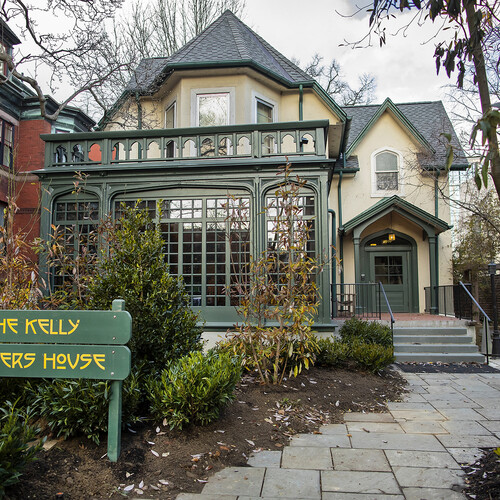 Readings
Readings
6:00pm
Kelly Writers House, 3805 Locust Walk

Legal advocate Kemba Smith, artist Makoto Fujimura, and lawyer Haejin Fujimura will launch the first event, hosted by the Office of Social Equity and Community.

A kinetic sculpture positioned on a hillside at Morris Arboretum & Gardens is designed to move with the wind. <br />
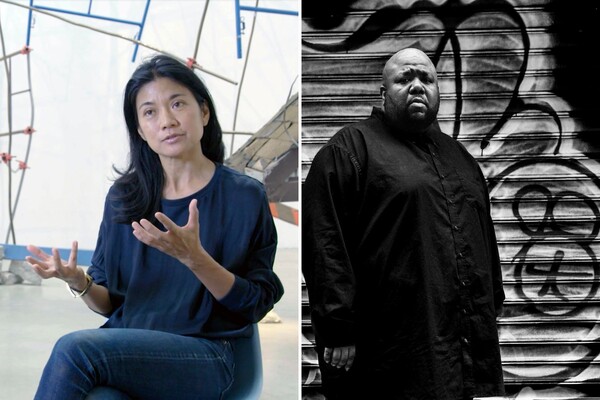
Sculptor Michelle Lopez and musician Tyshawn Sorey have each been awarded a 2024 Pew Fellowship in the Arts.
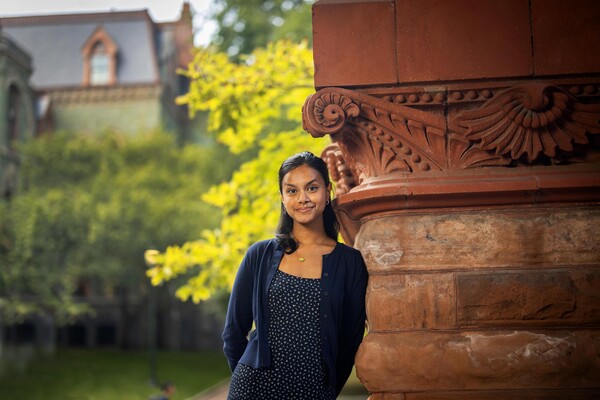
In a summer internship at the Barnes Foundation, the fourth-year student makes the arts accessible.
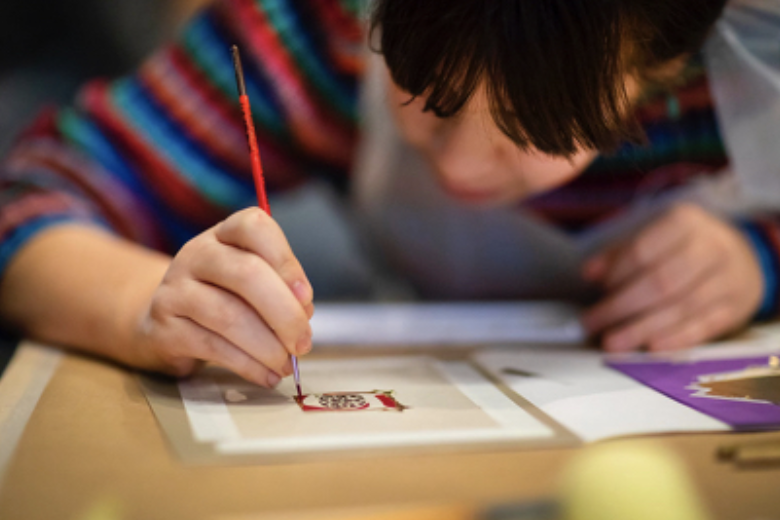
Find more arts and culture news, and so much more, on Penn Today’s website. You can also get Penn Today delivered straight to your inbox.